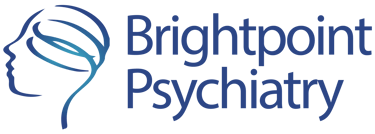Now Accepting Telehealth Appointments from anywhere in the State of Texas
Opioid Addiction Specialist
If you or a loved one experience extreme sadness paired with feelings of euphoria, bipolar disorder might be to blame. If you struggle with bipolar disorder or another mood disorder, Dr. Lalani, MD, and her expert mental health team at Bright Point Psychiatry, with office in Texas, are here for you. They can diagnose and treat your condition to help you thrive at work, school, and in relationships. Schedule an appointment with Bright Point Psychiatry by phone or online today.
Opioid Addiction
What is Opiate & Opioid?
Opiates are natural substances with pain-relieving properties that are derived from the poppy plant. They are usually prescribed to treat acute or chronic moderate to severe pain.
Some examples of opiates are:
Opium
Codeine
Morphine
Although some people use the terms “opiates” and “opioids” interchangeably, there is a slight difference between the two.
Simply put, opiates are natural narcotics, whereas opioids are made artificially. Semi-synthetic opioids, such as hydrocodone and oxycodone, are synthesized from natural opiates, whereas synthetic opioids (e.g., fentanyl) are made in labs to mimic the effects of opiates but do not contain them.
Nonetheless, today the term “opioid” is commonly used as an umbrella term for all types of pain-relieving drugs that interact with opioid receptors, including opiates.
Both opiates and opioids can be very addictive, and opiate abuse can be life-threatening. According to the Centers for Disease Control and Prevention, almost 81,806 Americans died from opioid overdoses in 2022. Around 13,500 of these deaths are linked to natural and semi-synthetic opioids specifically.
What are the symptom of Opiod Addiction?
Isolation, being secretive and avoiding interactions
Changing to a new group of friends
Unpredictability (including not showing up without notice)
Abandonment of daily routines, hobbies or responsibilities
Lack of care in personal hygiene and appearance
Asking for money
Drowsiness/Sedation
Pinpoint (constricted) pupils
Itching or Flushed Skin
Slurred Speech
Track Marks, most commonly on the inner elbow
Changes in physical appearance, including weight loss
Decreased appetite
Constipation
Muscle aches or pains
Withdrawal insomnia
Dizziness and headache
Runny nose
Abdominal cramps, nausea, vomiting or diarrhea
Fever or sweatin Sudden mood swings from irritability to euphoria
Depression
Anxiety
Decreased motivation Presence of Drugs or Drug Paraphernalia Paraphernalia (ex: medication bottles with labels removed, burned tinfoil, bloodied cotton swabs, syringes/ needles, bent spoons or rolled up dollar bills)
Doctor shopping (ex: obtaining prescriptions from different doctors, saying prescriptions were lost or needing a stronger prescription)
Financial or Legal Issues
How is Opioid addiction treated?
Brightpoint Psychiatry specializes in medication-assisted treatment specifically for opioid addiction. The medications we prescribe can reduce your cravings and physical withdrawal symptoms so that you can focus on taking back your life. They include:
Buprenorphine
While buprenorphine is a partial opioid itself, it activates the brain to a far lesser degree than full agonist opioids such as heroin or most prescription medications. Since the brain’s opioid receptors are already activated, stronger opioids won’t be able to take effect. Thus, buprenorphine reduces cravings and helps manage withdrawal symptoms.
Suboxone
Suboxone® is another FDA-approved medication for treating opioid addiction. A combination of buprenorphine and naloxone, Suboxone® has the same benefits as buprenorphine alone, but in addition it deters misuse by causing unpleasant withdrawal symptoms immediately if someone tries to abuse the medication through injection.
As part of our individualized treatment plans, we also offer professional substance abuse counseling services that can heal your mind and spirit from the pain of addiction. You and our team can work together to customize your treatment with counseling options like:
Individual counseling
One-on-one counseling can help you address the emotional components of your addiction. Throughout your treatment, you’ll learn how to handle stress, manage cravings, work through any underlying trauma and develop individual recovery goals.
Group counseling
Recovery is far easier with a reliable support system by your side to encourage you and hold you accountable. That’s what you’ll get with group counseling at AppleGate Recovery. Each session is made up of people like you looking to take back control of their life from the grip of opioid addiction.
Brightpoint Psychiatry
General Psychiatrist & AHDH Specialist Located in Carrolton, Texas, USA

